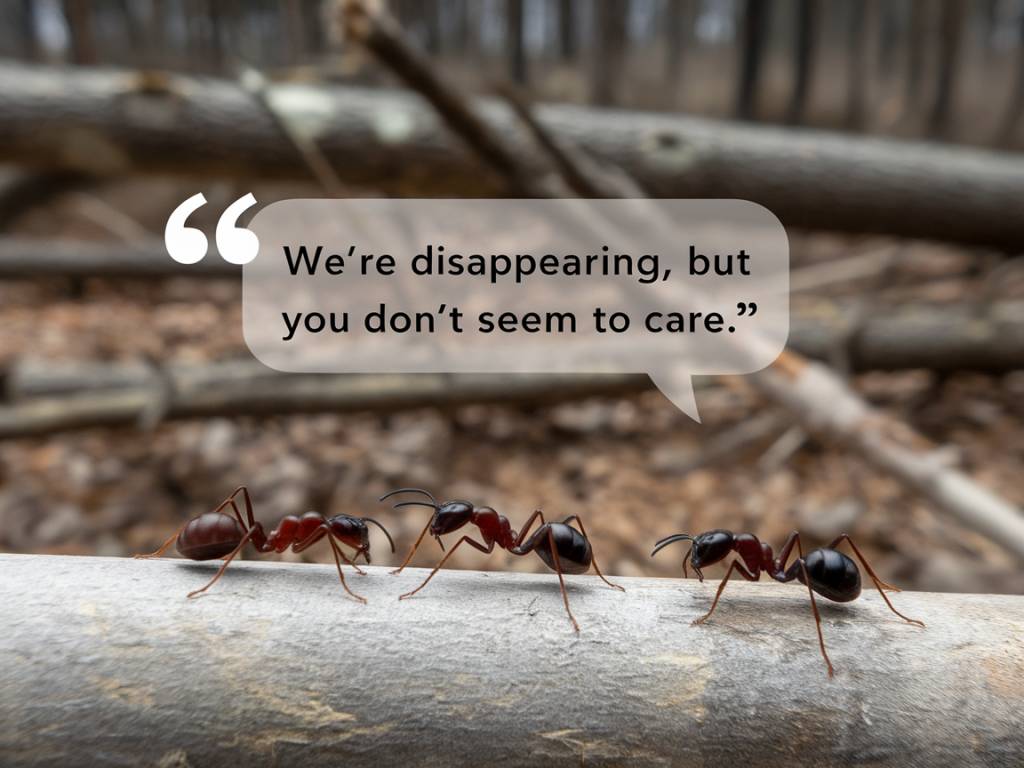Hey there, curious readers! It’s Sean, your friendly purveyor of quirky and fascinating insights. Today, I’m going to take you on a journey through the buzzing (or lack thereof) world of insects and explain why their silent extinction is something you definitely should care about. So strap in, grab a magnifying glass, and let’s dive in!
Diving Into the Insect Apocalypse
First things first, let’s get one thing straight: insects are absolutely vital to our ecosystem. They pollinate plants, break down organic matter, and serve as the building blocks of the food web. But these tiny critters are vanishing at an alarming rate, and it’s as though we’re watching a sci-fi movie with a devastatingly silent soundtrack.
Consider this: studies show that insect populations are declining by 1-2% each year. That might not sound like a lot, but over a few decades, it adds up like a college student’s credit card debt. The takeaway? This insect-a-geddon isn’t just a future issue; it’s happening right now.
Why You Should Be Buggin’ Out
Feeling indifferent so far? Let’s reel you in with some reasons that’ll make you sit up and take notice.
First, let’s talk food. Do you enjoy munching on apples, carrots, or basically any fruit and vegetable? Well, thank an insect for that. Many of the crops that make up your daily meals are pollinated by bees, butterflies, and other insects. Without them, your grocery store would look like a deserted wasteland.
But wait, there’s more! Insects are also crucial for waste decomposing. Imagine what would happen if nobody came to pick up your garbage for weeks—or eternity. That’s what our planet would face in the absence of insects who take care of organic matter decomposition. It would be a smelly, unhealthy world.
The Culprits Behind the Silent Extinction
So, what’s causing this bugged-out Armageddon? Sadly, it’s a cocktail of multiple factors, and spoiler alert: we’re partly responsible.
Becoming a Buzz-Worthy Hero
Okay, enough with the gloom. I know you’re itching to save the day—so let’s talk solutions! How can you help out the little guys and possibly save our planet in the process?
First off, plant native flowers and shrubs. This way, you’ll provide natural habitats and food sources for insects. Pollinator-friendly plants like lavender and sunflowers are Instagram-worthy and insect-approved.
Secondly, ditch the pesticides. Consider natural alternatives or integrated pest management techniques. Ladybugs and spiders are natural pest control agents that won’t send bees packing.
Want to go above and beyond? Create an insect hotel in your backyard. Yes, it’s as adorable as it sounds. These little shelters provide a home for beneficial bugs, so they can carry out their life-saving duties.
Getting Your Kids Involved
Why not get your mini-me’s involved in this heroic quest? Kids are naturally curious, and this is a perfect educational opportunity.
Take them for a bug-hunting expedition. Arm them with magnifying glasses and let them observe the insect world up close. Document what you find and discuss the roles these insects play. It’s like a treasure hunt but better because you’re finding the treasure in your own backyard.
Encourage them to start a “Pollinator Garden.” Give them a small plot of land or even just a pot to grow flowers that attract bees and butterflies. Trust me, the joy of watching a butterfly land on a flower they planted is priceless.
The Big Picture
Let’s not beat around the bush; the decline in insect populations is a red flag waving right in our faces. It’s imperative that we take action before it’s too late. Insects may be small, but their impact on our environment and, ultimately, our lives is gargantuan.
It’s easy to shrug off the loss of tiny creatures you don’t often think about, but their disappearance can create a domino effect with consequences we can’t even fully comprehend yet. By making some small changes in our gardening practices and educating ourselves and our children, we can make a big impact.
So the next time you see a bee buzzing around, give it a nod of respect. It’s not just another bug; it’s an unsung hero that our planet desperately needs.
Thanks for tuning in, my eco-friends! Until next time, keep caring, keep sharing, and keep buzzing with positivity!
Sean

